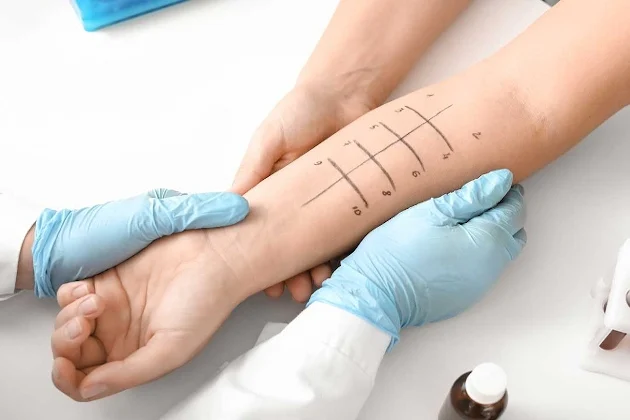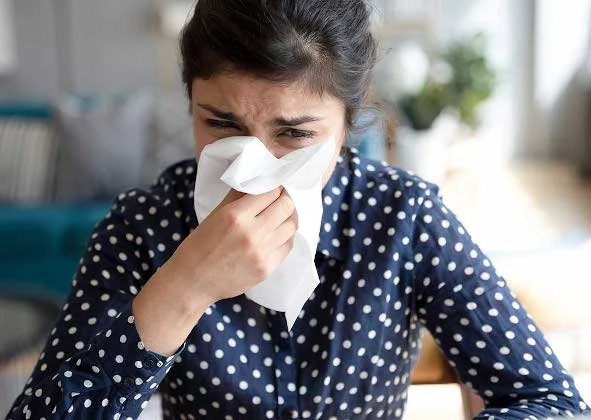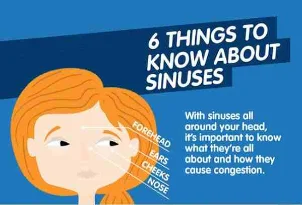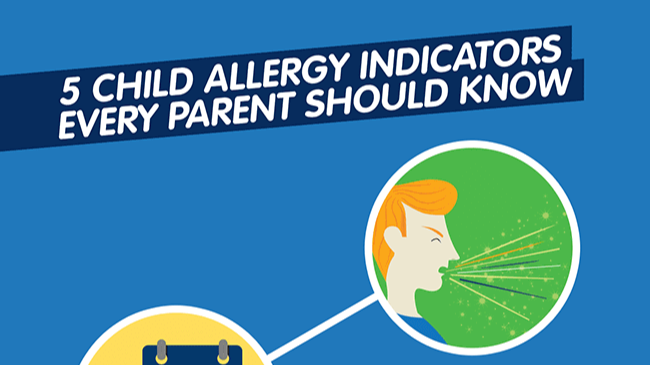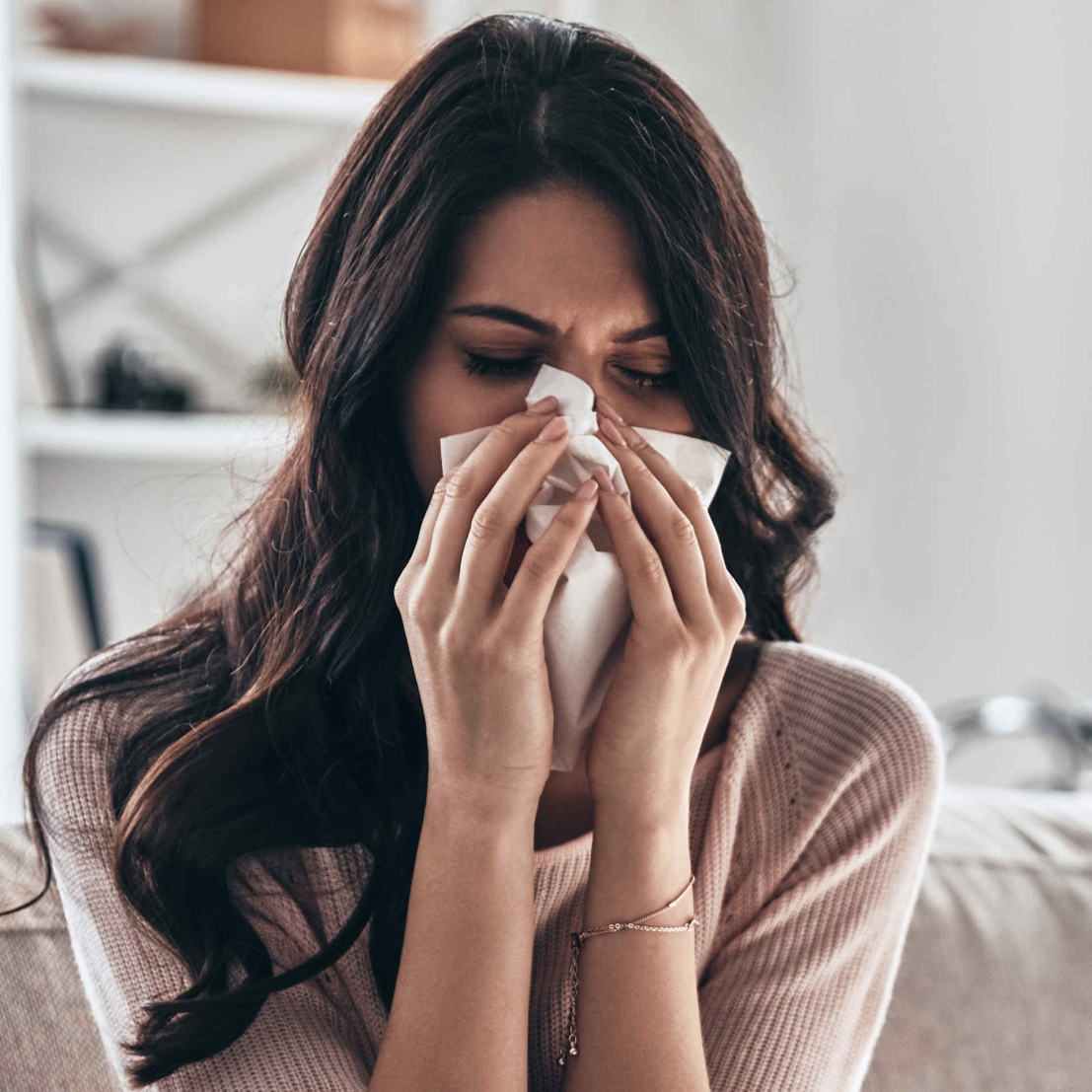Your First Line of Defense: Antihistamines
Form: Pills, liquids, and nasal sprays
What they treat
Itchy, watery eyes
Runny nose and sneezing
Itchy nose and throat
Allergic skin conditions (like hives)
How they work
Antihistamines work by blocking the site where histamine (one of the chemicals your body releases in response to an allergy trigger) binds to in order to cause your symptoms. REACTINE® contains the antihistamine cetirizine which provides fast, 24 hour symptom relief.
Another First Line of Defense: Intranasal Corticosteroid (INS) Sprays
Form: Nasal sprays
What they treat
Swelling and inflammation in the nasal passageway
Runny noses, sneezing, itchy nose, and nasal congestion
How they work
Intranasal steroids work in two ways. They first block the inflammatory signals your body releases to cause your symptoms and then they help signal the body to provide anti-inflammatory proteins to help reduce the swelling. This leads to the relief of nasal allergy symptoms and the nasal swelling that comes with allergies. The treatment may start to work on the first day you take it, but can take longer. In order to get maximum relief, you must take these products for over 1 to 2 weeks continuously.
Nasal Decongestants
Form: Pills, liquids, and nasal sprays
What they treat
Sinus and nasal congestion
Nasal stuffiness
How they work
Decongestants prompt the blood vessels to constrict, and as a result, they help relieve congestion in the nasal passageways. REACTINE Complete Sinus + Allergy contain both an antihistamine (cetirizine) and a nasal decongestant (pseudoephedrine).
Saline Nasal Sprays
Form: Nasal sprays
What they treat
Inflammation in the sinus passages.
How they work
Saline sprays can help to soothe irritated noses and ease stuffiness by loosening the mucus in the nasal passage.
Antihistamine Eye Drops
Form: Eye drops
What they treat
Itchy, watery eyes
Redness
How they work
Antihistamines work by blocking the site where histamine (one of the chemicals your body releases in response to an allergy trigger) binds to in order to cause your eye allergy symptoms.
Immunotherapy
Form: Allergy shots, pills, and oral drops
What they treat
Sensitivity to specific allergens
How they work
A series of injections/drops/pills given in increasing concentration of the specific allergy trigger given by a healthcare professional, to increase tolerance of allergens over time and reduce your overall reaction to that trigger to reduce and in some cases, stop allergy symptoms.
Allergy Medication
Find the right relief for your symptoms
Suffering from seasonal allergies? If you’re in need of relief, the good news is that it’s in close reach and can be found in several different over-the-counter medications at your local drugstore or pharmacy.
But to get the relief you need, you need to know which option is right for you. Feeling overwhelmed? Here, we explore and explain the differences between common medications and treatment for allergies.
Antihistamines:
First line of treatment: Antihistamine tablets are the cornerstone of treatment for allergic rhinitis, with a longstanding reputation for being a dependable first line of defense against seasonal allergies.
Antihistamines are often used to treat allergy symptoms including itchy, watery eyes, sneezing, itchy, runny nose, allergic skin conditions (such as hives).
There are two main types of antihistamines, referred to as first generation [e.g., BENADRYL®(diphenhydramine) and second generation [e.g., CLARITIN® (Cloratadine), REACTINE® (cetirizine), or AERIUS® (desloratadine)].
A second generation antihistamine like REACTINE® provides fast, 24 hour Symptom Relief. Most oral antihistamines are available OTC and can be taken once daily, particularly when you are exposed to triggers regularly, or during allergy season.
IMPORTANT: It is not recommended to use more than one non-prescription product to relieve your allergy symptoms. First generation antihistamines can cause drowsiness; when using a product like this, do not operate a vehicle or heavy machinery until you understand how this product affects you. In children, antihistamines may cause excitability. Talk to a doctor before using an antihistamine if you have chronic lung disease, glaucoma, difficulty in urination due to enlargement of the prostate gland, a cough that is accompanied by excessive secretions, if you are pregnant or nursing, or taking other antihistamines or sedating drugs or tranquilizers. Alcohol, sedatives and tranquilizers may increase drowsiness.
Intranasal Corticosteroids:
Another cornerstone treatment for allergic rhinitis: An intranasal corticosteroid spray reduces swelling and inflammation in the nasal passageway1 which help relieve troublesome nasal allergy symptoms, including a runny nose, sneezing, itchy nose and nasal congestion.
An intranasal corticosteroid spray can help some people within the first day of treatment; however, for other people, it may take 2 to 4 days to feel relief. In a few cases, it may take over a week to start to experience relief.2
IMPORTANT: Intranasal corticosteroids should not be used during pregnancy unless the benefits outweigh the risks. Speak to your doctor or pharmacist to understand the benefits vs. risks to you and your baby. If you become pregnant while using an intranasal corticosteroid medication, consult your doctor. Intranasal corticosteroids are known to pass into breastmilk and should be avoided if you are a breastfeeding mother.
Decongestants:
Breathing easier: If you are suffering from extensive swelling of the nasal passages, a decongestant is likely a good line of defense.
Decongestants prompt the blood vessels to constrict, and as a result, they help relieve congestion in the nasal passageways.3
Nasal decongestants should be used for no more than 3 days due to the risk of rebound congestion.
IMPORTANT: Remember to consult your pharmacist or doctor if you have any questions about using a decongestant to relieve your allergy symptoms. Take extra precautions and seek the advice of a healthcare professional if you are pregnant or are over the age of 65 choosing a medication to relieve your allergy symptoms. Oral decongestants are not recommended for those taking a prescription medicine for high blood pressure or certain medicines for depression or Parkinson’s disease called monoamine oxidase inhibitors (MAOI)s
In addition to considering a non- prescription product for allergy symptom relief, there are other things you can do to help minimize allergy related irritation. Avoiding allergens that bother you, wearing sunglasses outside to reduce eye exposure to allergens, using lubricating eye drops or nasal gels, and applying a cold compress to closed eyes are added ways to help provide some relief from allergies.
Remember to consult your pharmacist or doctor if you have any questions about using a non-prescription medication to relieve your allergy symptoms. Take extra precautions and seek the advice of a healthcare professional if you are treating a child, are pregnant, or a person over the age of 65 choosing a medication to treat your allergy symptoms.
To be sure any over-the-counter allergy medication is right for you, always read and follow the product labels.
Refer to product labelling for complete directions for use, including full warnings and other important information before use.
Other Options
Saline Sprays
Salt-water solutions or ‘saline nasal sprays’ are also an option for relief of symptoms, without a prescription. This type of spray contains sodium-chloride can help soothe irritated noses as it loosens the mucus in your nasal passage to ease stuffiness.1
Antihistamine Eye Drops
If itchy eyes in particular are causing you discomfort, antihistamine eye drops are designed to offer relief.
Immunotherapy
This is a form of long-term treatment that decreases symptoms for many people with allergic rhinitis, allergic asthma, conjunctivitis (eye allergy) or stinging insect allergy. Immunotherapy decreases sensitivity to allergens and often leads to lasting relief of allergy symptoms even after treatment is stopped.4
References
1. https://medlineplus.gov/ency/patientinstructions/000404.htm
2. http://www.nlm.nih.gov/medlineplus/ency/patientinstructions/000404.htm
3. http://www.healthline.com/health/allergies/decongestants
4. http://www.aaaai.org/conditions-and-treatments/library/allergy-library/allergy-shots-(immunotherapy)

